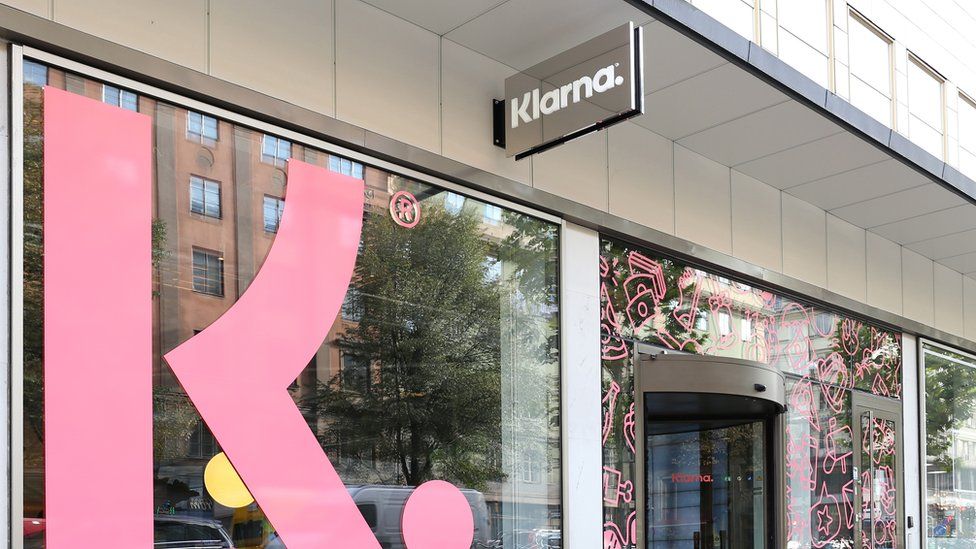Privacy watchdog to probe Klarna after email backlash
- Published

The Information Commissioner's Office said it will make enquiries into Klarna after scores of angry people questioned why it had their details despite never doing business with the payments firm.
The data protection watchdog said numerous people had made it aware of a marketing email Klarna had sent out.
It was followed by a message the email had been sent in error, and they had not been added to a marketing database.
But recipients asked how the firm had their email address in the first place.
One Twitter user, vlogger Christine Armstrong, tweeted: "Now why would Klarna have 'accidentally' sent me their newsletter when I have never used their services. Who sold them my email?"
Allow Twitter content?
This article contains content provided by Twitter. We ask for your permission before anything is loaded, as they may be using cookies and other technologies. You may want to read Twitter’s cookie policy, external and privacy policy, external before accepting. To view this content choose ‘accept and continue’.
The company apologised and in a blog said: "The email was sent to Klarna consumers who have recently used one of Klarna's products or services including Klarna's checkout technology."
The Swedish financial services group provides checkout technology for a large number of retailers such as Asos, TopShop and online beauty store Feelunique.
Customers can either choose to pay for their goods in 30 days via Klarna. Or they can pay with a credit or debit card which is processed by Klarna's software on behalf of the retailer.
The company said: "Klarna's checkout technology is a product some retailers use to process payments on their website. This means that Klarna processes all credit and debit card transactions for these retailers."
An ICO spokesperson told the BBC: "Businesses should only contact individuals for electronic marketing purposes where consent has been provided or, in limited circumstances, where they have an existing relationship with a customer.
"Some members of the public have made us aware of an email sent by Klarna and we will be making enquiries."
A number of people on Twitter reported that they had never used Klarna products at all.
Nicole Krystal Crentsil, chief executive of platform Black Girl Fest, tweeted: "Hmmm... how & why do you have access to my email address? I know Klarna is used by some online shops I shopped from, but I'm 100% sure I've never used it."
Allow Twitter content?
This article contains content provided by Twitter. We ask for your permission before anything is loaded, as they may be using cookies and other technologies. You may want to read Twitter’s cookie policy, external and privacy policy, external before accepting. To view this content choose ‘accept and continue’.
But a spokesperson for Klarna said: "Whenever anyone uses Klarna's checkout technology they agree to the terms and conditions and our privacy notice, which allows Klarna to promote its products and services to them."
He said: "Klarna's marketing team has access to these emails," however: "Consumers normally do not receive newsletters unless they have opted in or downloaded our app."
He said: "We are currently investigating how this happened, and will take all necessary action to ensure nothing like this can happen again in the future."
- Published20 July 2020
- Published27 February 2020